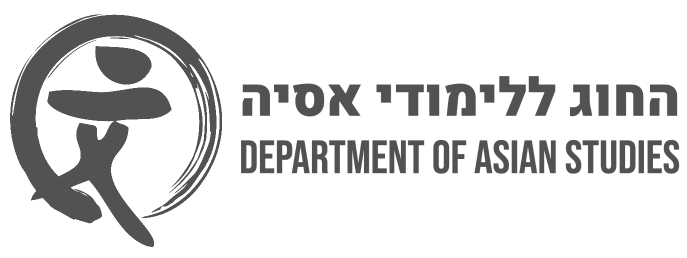The establishment of the Asian Languages Library at the Hebrew University of Jerusalem in 2007 became a major breakthrough in East Asian studies in Israel. The library, the first of its kind in Israel, was established by the Frieberg Center of Asian Studies within the Central Library of Mt. Scopus. Modeled after similar libraries in some of the leading US universities and run by a professional librarian, the library aimed at providing state-of-the-art research facilities for the rapidly growing number of graduate students and scholars of East Asian Studies in Israel, and for the increasing number of Chinese students at the Hebrew University.
In addition to the expanding book collection of over 10,000 volumes, the Library promptly entered the 21st century with providing access to multiple Chinese and Japanese electronic databases, most of which had been heretofore inaccessible from Israel. Acquisition of database access allowed by the most generous support of the Polonsky foundation has revolutionized the field of East Asian studies in Israel, primaliry in China-related fields.
The most essential acquisition of the library was the China Academic Journals Database (CAJ) that is part of CNKI (China National Knowledge Infrastructure) databases. The database allows access to over 20 million full-text articles contributed by over 3,000 journals in social sciences and humanities alone, at the fingertips of users. With its help, the best knowledge of Chinese scholars in the fields of Humanities, Social Sciences, Politics and Law became accessible to every student, researcher and visitor of the Hebrew University. Its impact on the improvement of research possibilities is already visible, and it became indispensible for any study on China related topics from the MA level and above.
Another pivotal acquisition was the purchase of the Siku quanshu Database. The Siku quanshu (“The Complete Library of the Four Treasures”) is the largest single assembly of classical works in the world, compiled in the 1770s by edict of Emperor Qianlong. This massive compendium of 3,000 years of Chinese knowledge includes works in classics, literature, history, medicine, science and technology, diplomacy, philosophy, linguistics and more. The database brings to life 3,460 works totaling more than 36,000 volumes in a unique, fully online format. This monumental work is the result of contributions by hundreds of editors and noted scholars, and is enhanced by never-before available tools which assist research. Immediately upon its acquisition, it became a major tool in research of pre-modern Chinese history in the Hebrew University.
In addition to these two key databases, the Library purchased a few other databases, such as the Chinese Ancient Texts (CHANT) Database, which provides access to major texts and paleographic materials from early China (including important access to inscriptions on bronze vessels and on bamboo slips, which had been discovered in the recent decades).
In Japanese studies, we purchased the database of Yomiuri Shinbun, one of Japan’s leading Japanese newspapers, which offers full-image reproductions of the newspaper starting from the Meiji period and until the early1970s. It is a superb resource for researching Japan’s modern history, as well as forexamining the challenges and discourse surrounding the evolvement of the country’s political, social, and economic institutions.
The Asian Studies Library in the HU is still a young and ongoing project, yet its impact is already visible: by radically expanding research facilities on China and Japan related topics, it contributed toward the enhancement of research potential of Israeli students and scholars, as well as allowed us to attract an increasing number of doctoral and post-doctoral scholars from Israel and the international community, including China. Its establishment – and particularly the still evolving database acquisition – became a milestone in the history of Asian Studies in Israel, on the way to turning the Hebrew University into one of the major world research centers in the field.
For further details, please contact Prof. Yuri Pines, Coordinator of the East Asian Library Project (yuri.pines@mail.huji.ac.il ).


